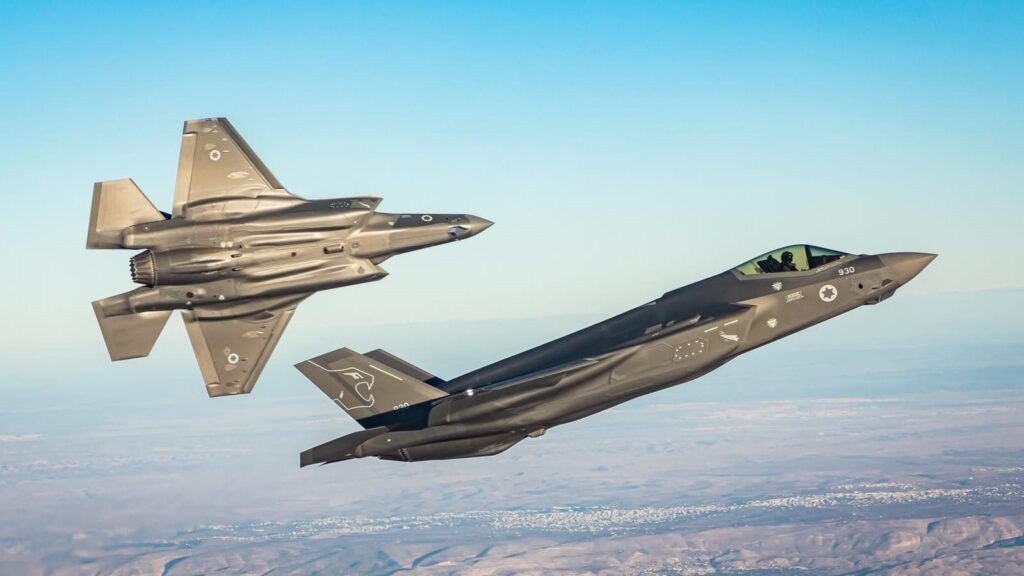“Iran isn’t going to attack again. It’s all up to Israel what happens next,” a Western security source told Field.
“Iran’s attack on Saturday night was retaliation for 1 April, for Iran it’s over now. The Israeli air strike on the Iranian embassy in Damascus [on 1 April] that killed General Mohammed Reza Zahedi crossed a line for the Iranian regime. Sure, the Iranians have absorbed a lot of Israel-attributed hits over the years, but the combination of a General that was important and symbolic figure in the regime and the attack on sovereign Iranian territory was a public humiliation.”
A Western military source added, “The 1 April strike was intended as deterrence. Israeli F-35’s flew through Russian air defences over Syria – the S-400, the best there is – to show that they can hit anywhere they want to. That was Israel telling Iran not to be drawn in because of Gaza, or the escalating conflict with Hizbullah in Lebanon. Iran had to respond symmetrically and Israeli Military Intelligence will have factored that in. That’s why Iran directly attacked Israel for the first time ever, rather than using a proxy, or an attack with no signature.”
A Western diplomatic source told Field that “the Iranians made a point of calibrating their attack to avoid war. They signalled their attack through diplomatic channels 72 hours in advance and stated that it was a one-off. They made a point of stating that they were attacking the Nevatim and Hetzarim air bases in Israel, which they claim launched the F-35’s which killed their general, trying to message that they were directly linking the attack to the 1 April strike on their consulate building in Damascus.”
An Israel watcher told us that “With the 1 April strike, it was a win-win for Israel. If Iran didn’t strike back then they took out a significant Iranian actor cost-free, or, as happened, Iran did strike back and Israel mobilised the Americans and international community behind them and recalibrated their reputation after the battering that Israel has taken over the starvation in Gaza and killing of aid workers. It will now be an internal calculation as to whether they want to retaliate for the retaliation. Currently Israeli military objectives are being driven by high-tension domestic politics, not rational military factors. So, with this government, who knows.”
There were mixed views in Israel. All source reporting reflects the positives:
- The Israeli defence air defence system in coordination with international allies and regional cooperation worked amazingly
Out of 110 ballistic missiles, only 5 are reported to have hit the Nevatim base – damaging a Hercules transport aircraft, some empty storage facilities and a disused runway
All 185 Unmanned Aerial Vehicles and 36 cruise missiles were shot down before they reached Israel
The US stood resolutely by Israel’s side
The US, UK and Jordanian air forces shot down 70 of the 221 drones and missiles and there are reports of active cooperation by Saudi Arabia and other Arab countries
Arab cooperation to contain Iran, what some in the Israeli press are calling the “Western – Sunni – Israeli alliance”, or the Middle East Air Defence alliance.
And the negatives:
- Israel was locked-down, its population terrified, its economy shuttered for 24 hours
It cost $1 billion to defend against the Iranian strike
Israeli Military Intelligence are being publicly criticised as having miscalculated that Iran would not respond directly to the killing of General Zahedi on 1 April
Israel’s deterrence over Iran is over, if provoked again, Iran may attack again
And now Iran knows the location of Israel’s strategic air defence assets and how Israel responds to a mass attack.
“What now?” the Israel-watcher asked. “It’s a very complicated question. Within Israel there’s a call for action against Iran. Many people are celebrating what they think is a new Israeli alliance with Sunni states against Iran. They don’t understand that there’s a big difference between the Arabs being anti-Iran, which they are, and pro-Israel, which they are not. Maybe the Israelis will finish their operation in Gaza and go into Rafah, but that will upset the Americans who are worried about the civilian death toll. Maybe they attack Hizbullah in Lebanon. After this weekend, the rules of the game are all torn up.”
Image: IDF Spokesperson’s Unit / CC BY-SA 3.0


